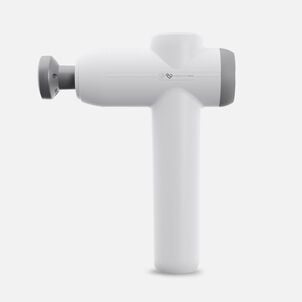Way too common open enrollment mistakes
Health insurance may be one of your most important purchases each year since what you choose can affect your physical, mental, and financial health. The key is to understand what is at stake to prevent missteps that may hurt you in the long run.
The average cost of healthcare, including premiums and out-of-pocket expenses, is more than $12,900 per person, according to a recent study. Your employer will cover the bulk of that, however, the consequences of choosing the wrong plan — or missing open enrollment entirely — could be financially devastating.
Here are four common mistakes to avoid during open enrollment.

Staying with an existing plan without exploring your options
Most Affordable Care Act (ACA) compliant health plans allow you to automatically renew your coverage from year to year. And even if your plan isn’t available for 2024, you may be automatically enrolled in a similar plan with comparable coverage and pricing.
But just because you have the option to auto-renew or get mapped to a different plan doesn’t mean you should settle for it. Rather, it pays to reassess your healthcare needs and also see what plan options are available to you. You may find that changes in your own health make it so your current plan isn’t actually the best fit, even if that plan doesn’t change.
Assuming a low-premium plan best
Health insurance premiums and deductibles tend to have an inverse relationship – the higher one is, the lower the other. But don’t assume that a lower premium is the way to go. Doing so could result in a deductible you struggle to meet. And unless you’re the type who rarely gets sick, you could end up paying more for healthcare all-in under a low-premium plan than with a higher-premium plan.
(It’s also important to note that plans with higher premiums don’t always have lower deductibles. They might have a broader provider network, for example, better pre-deductible coverage, or a lower total out-of-pocket limit.)
Ruling out high-deductible plans
For people who tend to use their health insurance a lot, a high-deductible health plan (HDHP) can be unappealing, even with the lower premiums that these plans often have. But before you assume you shouldn’t sign up for a high-deductible plan, remember: The ACA mandates that these plans cover certain preventive services (such as immunizations and screening tests like mammograms) before their associated deductibles come into play. And there are significant tax advantages when you contribute to a health savings account (HSA), which is only allowed if you have coverage under an HDHP.
HDHPs are a specific type of IRS-regulated plan — they don’t just refer to any plan with a high deductible — and they cannot cover any non-preventive services before the deductible. However, the list of services that HDHPs are allowed to cover as preventive care was expanded in 2019 to include ongoing treatment for some chronic conditions.
When you consider pre-deductible preventive care, premiums that are often lower than more traditional health plans, and the tax advantages of an HSA, it’s worth giving HDHPs a second look. These plans are often seen as a great option for healthy people, but they can sometimes be the best option for people with serious health conditions as well.
Choosing an FSA eligible plan, but contributing the wrong amount
Still not sure about moving to an HDHP but want similar tax-free spending benefits? Maybe a more traditional health plan with an FSA is better for your upcoming year. But even if you consider yourself a spending guru, some experts still struggle to predict the right amount to contribute.
FSAs require you to choose your contribution amount during open enrollment. The amount will be taken out of your paycheck and deposited directly to your FSA. You can only change your FSA contribution amount if you have a qualifying event like marriage, divorce, change in employment status or having a child.
It doesn't matter if you funded your FSA because you were planning an expensive procedure that subsequently gets canceled. With limited exceptions, FSA funds are subject to "use it or lose it", meaning you'll need to spend your full election or risk forfeiting your hard-earned dollars back to your employer (good thing we have thousands of eligible items for you to use your remaining funds on).
HSAs, by comparison, don't have these restrictions. Something to consider if you're given the option. This is why it's always important to accurately estimate how much you might spend on health expenses before signing up for a tax-free plan.
—
Thank you for visiting the HSA Store Learning Center. Don’t forget to follow us for more helpful tips on Facebook, Instagram, and Twitter.


.png)
















